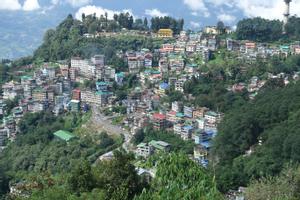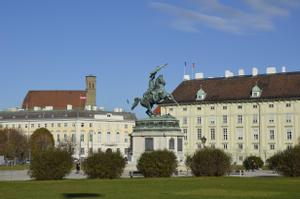The Scientific Legacy of René Nebesky-Wojkowitz
import Media from './components/media'; import { Gallery } from './components/wrappers';
The data presenting in this collection derive from the project "The Scientific Legacy of René de Nebesky-Wojkowitz" (P 31570; 10/2018–12/2023; project members: Uwe Niebuhr (PI), Verena Widorn, Tsering Drongshar, Aleksandra Apic), directed by Martin Gaenszle and funded by the Austrian Science Fund (FWF) and is here reunited as a valuable contribution to the preservation and utilization of the legacy of the Austrian Tibetologist and ethnographer René Nebesky-Wojkowitz (1923–1959).
The project concentrates on Nebesky-Wojkowitz's three travels to South Asia (1950–1953, 1956/57 and 1958/59) and on his heterogeneous material of various ethnic cultures – consisting of monographs, articles, field notes, tape recordings, photographs and film material, Tibetan manuscripts and blockprints, as well as numerous ethnological and artistic artefacts. The largest part of these resources is today in the possession of the Weltmuseum Wien. The project especially looks into the geographical, political and socio-historical context of his journeys.
By analysing Nebesky-Wojkowitz's material from different perspectives and using the distinctive methods of each of the discipline involved in the project (art history, anthropology, South Asian studies, Tibetology and religious studies), the aim is to highlight the importance of his pioneering and influential work not only on Tibetan religion but on many other aspects of Himalayan culture. By combining Nebesky-Wojkowitz's multimedia estate with all kinds of data collected during the project’s field trips to India (West Bengal, Sikkim) and Nepal, the changes that have taken place in these regions over the last 70 years are also documented.
Featured Sets
Places where Nebesky-Wojkowitz has conducted research:
##### Monasteries and temples visited by Nebesky-Wojkowitz:
##### The Nebesky-Wojkowitz Collections:


